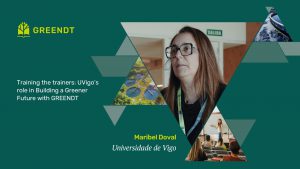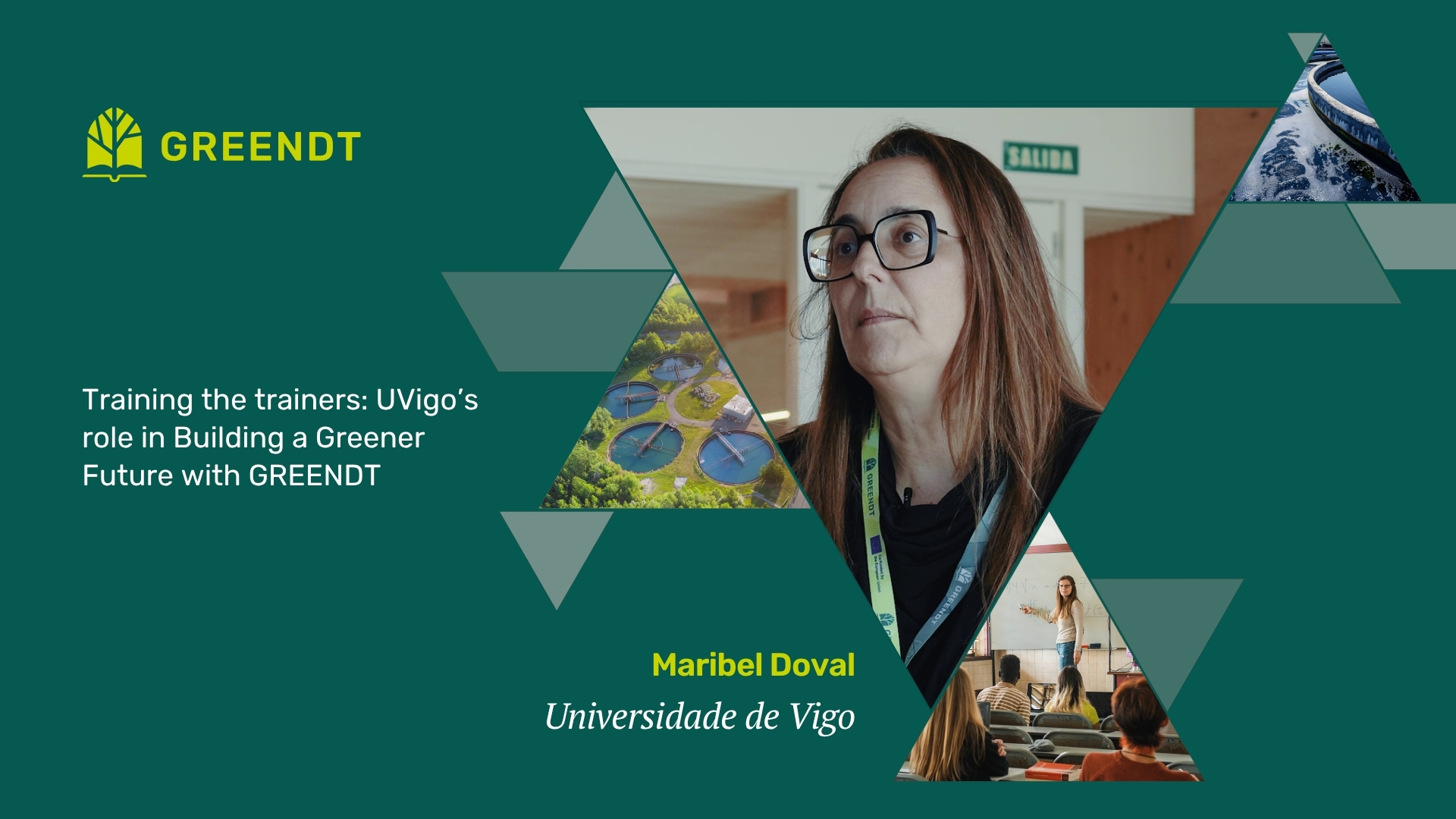
The GREENDT project successfully launched its first Train-the-Trainers (ToT) workshop from July 16 to 18, 2025, hosted by the Universidade de Vigo (UVigo) at its Ourense Campus. The event marked a significant milestone in Task 3.3 – Implementation of ToT-Enhanced Training Sessions, bringing together researchers, educators, engineers, and students from across the consortium to co-develop and evaluate educational resources on key themes of the project: Engineering Diplomacy, Equity & Inclusion, and Environmental Engineering.
Professor Maribel Doval, Associate Professor at UVigo’s Faculty of Education and Social Work and the university’s GREENDT coordinator, opened the session by emphasizing UVigo’s commitment to embedding sustainability, equity, and diversity into engineering education:
“Our goal is to support our partner universities in designing a Master’s course that remains viable and impactful beyond the end of project funding. This means training future engineers to not only understand environmental systems, but to be able to navigate social and legal dimensions through diplomacy and inclusive practices.”
A Deep Dive into Multidisciplinary Training Topics
The training was structured around three key thematic pillars, directly aligned with the United Nations Sustainable Development Goals (SDGs):
- Engineering Diplomacy (SDG 13 – Climate Action, SDG 16 – Peace, Justice & Strong Institutions)
Participants explored how engineers can act as mediators and influencers in global sustainability transitions. Topics included:
- European Environmental and Climate Law
- The European Green Deal and Renewable Energy Law
- Policy Instruments for Global Environmental Governance
This module introduced the concept of “engineering diplomacy” as an emerging competence that links technical innovation with regulatory, legal, and policy-making processes.
- Equity and Inclusion in Engineering Education (SDG 4 – Quality Education, SDG 10 – Reduced Inequalities)
Hosted at UVigo’s Faculty of Education and Social Work, this module emphasized redesigning curricula to serve diverse learner populations. Sessions addressed:
- Engineering for All: Inclusive approaches to STEM education
- Intersectionality and social justice in higher education
- Institutional strategies for inclusive excellence
The module championed values-based teaching as a core component of engineering training, especially in global contexts.
- Environmental Engineering, Sustainability & Water Issues (SDG 6 – Clean Water and Sanitation, SDG 7 – Affordable and Clean Energy, SDG 11 – Sustainable Cities)
Focusing on practical environmental issues, this segment explored:
- Environmental Engineering Curriculum Development
- Water Quality, Treatment Technologies, and Ecosystem Health
- Integration of Geothermal and Photovoltaic Systems into Education
Participants also reviewed and provided feedback on Resource Kits developed for each thematic area, supporting the future rollout of the Master’s programme.
Field Visits and Experiential Learning
Beyond classroom sessions, participants engaged in hands-on and site-based learning, including visits to:
- UVigo’s geothermal and photovoltaic energy systems
- The pilot plant, soil, and environmental science labs
- The Velle Wastewater Treatment Plant (WWTP), a best practice model for sustainable urban water management
- The Botanical Garden and Sil River Canyons, showcasing the region’s ecological and cultural heritage
These activities highlighted how UVigo’s Ourense Campus operates as a living laboratory aligned with the Agenda 2030 and Spain’s green transition objectives.
Building Capacity for Long-Term Impact
Throughout the training, visiting faculty and researchers from partner institutions collaborated with UVigo experts to review, adapt, and co-create teaching and learning materials. The workshop also provided opportunities for cross-institutional networking and interdisciplinary exchange—laying the groundwork for sustainable collaboration beyond the GREENDT project.
With this first training session completed, GREENDT takes a major step toward institutional transformation in higher education, equipping future engineers with the knowledge and tools to drive systemic change.



